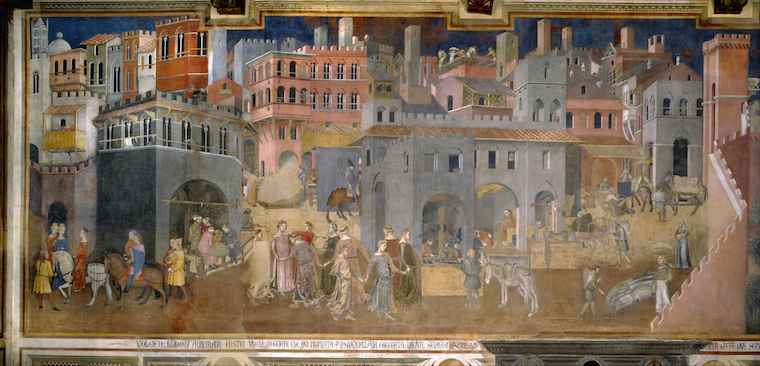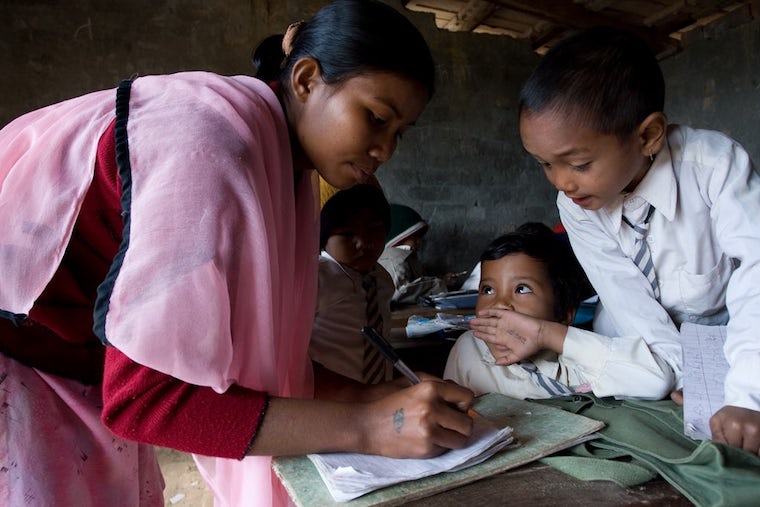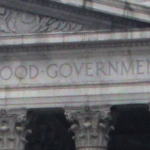
Words of Paradise – Virtue and Good Government
 Words of Paradise (Kalimat-i-Firdawsiyyih) is another work of Bahá’u’lláh from late in his life. Like Tajalliyat, Bisharat and Tarazat, Kalimat-i-Firdawsiyyih, has at its core a list of counsels for its readers. Quite a few of them are specifically directed to the rulers of society.
Words of Paradise (Kalimat-i-Firdawsiyyih) is another work of Bahá’u’lláh from late in his life. Like Tajalliyat, Bisharat and Tarazat, Kalimat-i-Firdawsiyyih, has at its core a list of counsels for its readers. Quite a few of them are specifically directed to the rulers of society.
Those familiar with international relations will know that it is inspired by the theme of “political realism” — leading to conclusions such as that morality does not apply to actions of the state. Such a theory has been inspired by thinkers such as Niccolo Machiavelli. Although there is some controversy about Machiavelli’s true intent the following is a typical description his thought.
Machiavelli presents to his readers a vision of political rule purged of extraneous moralizing influences and fully aware of the foundations of politics in the effective exercise of power. The term that best captures Machiavelli’s vision of the requirements of power politics is virtù. While the Italian word would normally be translated into English as “virtue,” and would ordinarily convey the conventional connotation of moral goodness, Machiavelli obviously means something very different when he refers to the virtù of the prince. In particular, Machiavelli employs the concept of virtù to refer to the range of personal qualities that the prince will find it necessary to acquire in order to “maintain his state” and to “achieve great things,” the two standard markers of power for him. This makes it brutally clear there can be no equivalence between the conventional virtues and Machiavellian virtù. Machiavelli expects princes of the highest virtù to be capable, as the situation requires, of behaving in a completely evil fashion. For the circumstances of political rule are such that moral viciousness can never be excluded from the realm of possible actions in which the prince may have to engage. Machiavelli’s sense of what it is to be a person of virtù can thus be summarized by his recommendation that the prince above all else must acquire a “flexible disposition.” That ruler is best suited for office, on Machiavelli’s account, who is capable of varying her/his conduct from good to evil and back again “as fortune and circumstances dictate”. [Machiavelli – Stanford Encyclopedia of Philosophy]
Bahá’u’lláh teaches an entirely different philosophy of government.
The faults of kings, like their favours, can be great. A king who is not deterred by the vainglory of power and authority from observing justice, nor is deprived of the splendours of the day-star of equity by luxury, riches, glory or the marshalling of hosts and legions shall occupy a high rank and a sublime station amongst the Concourse on high. It is incumbent upon everyone to extend aid and to manifest kindness to so noble a soul. Well is it with the king who keepeth a tight hold on the reins of his passion, restraineth his anger and preferreth justice and fairness to injustice and tyranny.
It is clear from the foregoing that Bahá’u’lláh rejects a separation of governance and personal morality. It is “realistic” in the sense that it confronts the humanity that governance involves. Human beings make decisions about government. Such decisions are inseparable from our ideas of right and wrong. Nor are they separable from an honest appraisal on the purpose and motive of decision-making. Maintenance of power and privilege is not an end in itself.
The following passage also highlights personal virtue as the source of good governance. It is succumbing to self which leads to bad governance.
O people of God! Beseech ye the True One—glorified be His Name—that He may graciously shield the manifestations of dominion and power from the suggestions of self and desire and shed the radiance of justice and guidance upon them.
Bahá’u’lláh wrote extensively to the rulers of society. We have seen these writings in his letter to the kings and for example to Napoleon III and Queen Victoria. His counsels on good government are also explored in a previous article.
(This article is the 173rd in a series of what I hope will be 200 articles in 200 days for the 200th anniversary of the birth of Bahá’u’lláh. The anniversary is being celebrated around the world on 21 and 22 October 2017, The articles are simply my personal reflections on Bahá’u’lláh’s life and work. Any errors or inadequacies in these articles are solely my responsibility.)
Image Credits: The Effects of Good Government File:Ambrogio Lorenzetti – Effects of Good Government in the city – Google Art Project.jpg
Created: (1338 – 1339) (Public Domain)







